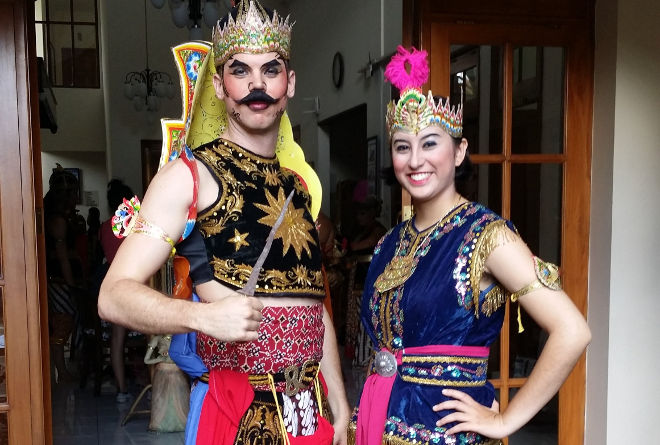How Race, Gender And Culture Shape The Identities Of Second-Generation Australian Women
"I’ll never be fully Australian."
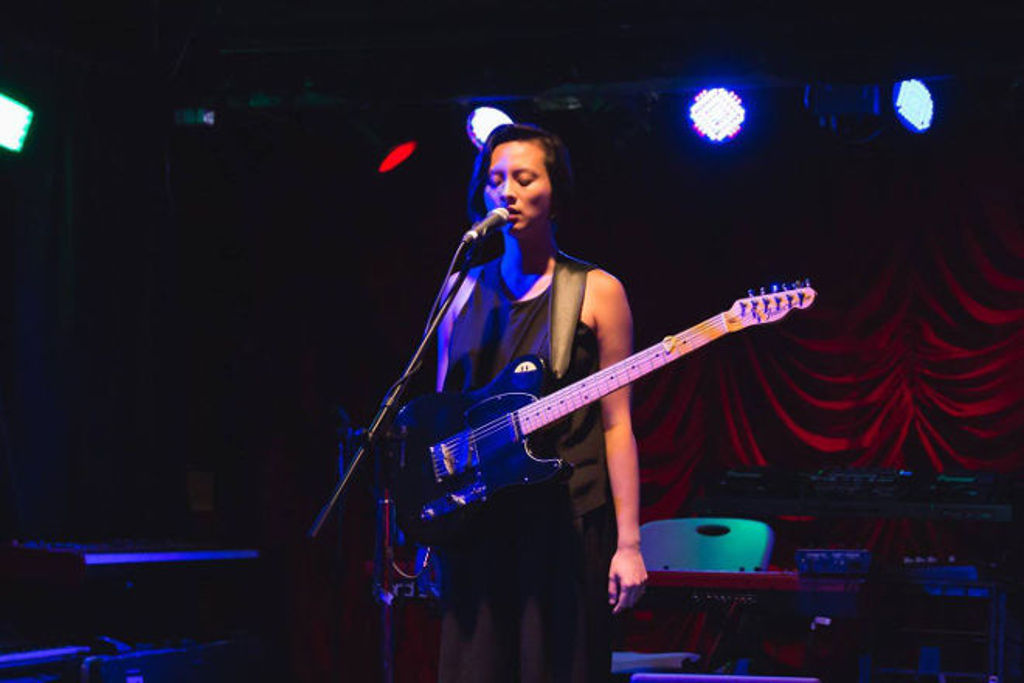
In Australia, there remains a tendency to perceive racial and gender issues as separate. The Human Rights and Equal Opportunity Commission found that gender and racial discriminations are often discussed as if they are “mutually exclusive … that is, race discrimination is generally discussed in relation to men, and gender inequality is discussed in relation to white women.”
Second-generation Australian women – those who were born in the country and have at least one overseas born parent – represent 10 percent of the Australian population, and are often part of ethnic minorities. Raised outside their parents’ culture, they contribute to the country’s diversity. However, their voices often remain submerged in the mainstream discourse which insists that not only is assimilation to the ‘Australian way of life’ a natural thing to do, but also that their cultures could never be compatible with women’s rights. Alongside fighting gender inequality, second-generation Australian women also have to face racism and perceptions that they do not represent Australia’s national identity.
Below are the stories of three second-generation Australian women and their journeys in facing dilemmas of culture, gender, and identity.
–
Sabina*
The year was 2013. Sabina* recalls that she was just one of the many customers walking into the beauty shop, seeking a facial treatment. However, noticing Sabina’s hijab, the beautician decided to take the small-talk routine to another level.
“Are there many Islamic students in your workplace?” the beautician asked as she wielded her tweezers. “Because even in Australia, Islamic parents are really strict. They don’t allow their daughters to get education.”
“Well, I’m about to submit my PhD,” Sabina replied, careful not to offend the person who would determine the shape of her eyebrows. But the beautician said, “That girl was shot by the Taliban.” She continued, “So have your parents forced you to get married?”
“My parents would never do that,” Sabina refuted, surprised at her own defensiveness. Unsatisfied that her assumptions thus far were not validated, the lady insisted, “I bet they’d hate it if you brought an Aussie home though.”
Sabina is an academic, a reality TV enthusiast, a columnist, and much more. But apparently, like the beautician, most people see Sabina as an exception to the rule that is Lebanese Muslim women.
Sabina has understood how it feels to be seen as an anomaly since a young age. Raised in the “relatively nice, middle-class, white suburb” of Picnic Point, she grew up witnessing people around her trying to define what it means to be Lebanese. “People would say, ‘Wogs are like this’, or ‘Arabs are like that’,” says Sabina. Those same people would soon notice her presence and quickly try to rectify, “Oh, no, you’re not like that; no offense”.
She wondered if their views – that a successful, intelligent Lebanese Muslim is the exception rather than the norm – were a factual representation of her community. “For a long time, I very much wished I wasn’t Muslim, that I wasn’t Arab… because I just wanted to be like everyone else.”
Self-acceptance finally came in Sabina’s high school years. At 17, she started wearing hijab and learning more about Islam. She went on to study sociology at university, which turned out to be “a really empowering experience” for her. Sociological theories and language, she says, helped her understand her ordeals. “My trajectory as an academic was influenced very much by the experiences of how I’m feeling like an outsider as a child,” says Sabina. “The only thing that gave me control over those experiences was being able to explain them.”
Yet that moment in the beauty shop had taken her back to childhood.
Sabina hates the way it made her feel the same way she did when she was younger: that she should be grateful to have circumstances that are “so unlike other Muslims, ‘real’ Muslims”; that she was different – better, superior – than the rest of her ‘kind’. Only now, she believes she knows better.
To Sabina, the notion that her migrant parents would not let their children get educated is baffling, as for them opportunities often only come through education. “And it was no longer talking just about a migrant experience, but a specific Muslim migrant experience,” Sabina says, “which was that I didn’t have access to education, that my parents wouldn’t allow me to marry somebody out of my culture, that I came from a culture that was really controlling – which is not in any way how I review my experiences.”
To her, this mundane interaction shows the bigger picture of being a minority in Australia. “You’re always forced to talk about politics, race, and religion… yes, sure, I come from a particular cultural background, and I have a religious belief, and I’m proud of those things,” says Sabina. “But I have other interests – I want to get my facial, I want to get a massage. I don’t want to talk to you about politics or ISIS or why women in third world countries are denied education.
“I’m not saying those issues aren’t important, but I’m saying I don’t want to be a poster child for those kinds of experiences, because they’re not even my experiences, you know?”
–
Vivian
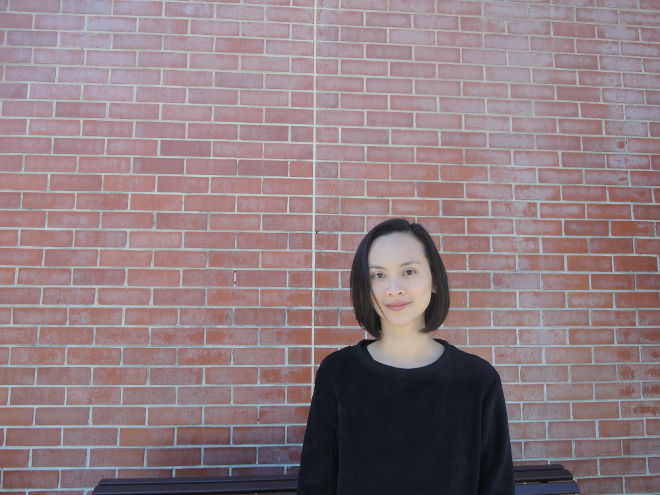
Once a teenager who went downtown every weekend to attend gigs, Vivian is now in the scene and on the stage under the name ‘Lovely Head’, writing and performing electronic pop songs. She is living her dream – although in different ways than she had imagined in her adolescence.
Just like many others, Vivian’s enthusiasm for music in her teenage years was fuelled with angst and influenced by a search for identity. However, for her, the question of identity was further complicated by her ethnicity.
Growing up in a three-house complex in Minchinbury, NSW with her Vietnamese parents, aunts, and grandparents, Vivian often felt disoriented. Her life did not seem to match her friends’ or those portrayed in the media. Her parents, unlike many others, did not speak much English and did not allow her to go to sleepovers. Ducks and daikon on her plate felt strange when compared with steak, lasagne, or anything she saw on television. “I saw Vietnamese-ness as this thing to be ashamed of,” says Vivian. “It didn’t feel cultured to me.”
To cope with this crisis, Vivian resorted to music. New Order, Radiohead, and the Strokes helped her feel like “Asian, but not that kind of Asian” – less of a studious, quiet girl and more of a “cool, music-loving chick”.
As Vivian grew up, she began to comprehend her parents’ situation and intents, as well as her own. Vivian says that looking back, she now realises she used music as a “crutch” to escape “feeling too ‘Asian’”.
“It’s all subliminal, really,” says Vivian. “Every bit of media you consume, particularly in Australia, is very white. You don’t feel yourself represented in the media or in pop culture.
“All the cool people weren’t Asian. You start associating that whiteness with the…” she pauses, trying to find the appropriate word, “optimum way of being.”
She also started to perceive all the Anglo men in the bands she loved in another way. “In the music industry, the norm is for white dudes playing guitar and drums… They can afford to be invisible, but also dominant,” says Vivian. While her white male counterparts can be assessed solely on their work, she faces more judgment at face value. “People have their preconceptions of what a female should be or is, and as an Asian, the same thing… You have to work twice as hard to prove that you are capable.”
Today, Vivian is more appreciative toward her cultural heritage. “I realised as I’ve grown up, I’m so privileged and lucky to be a part of this rich Vietnamese history.” In her Lovely Head project, she puts this realisation into practice. “I very consciously try to harness my femaleness and my Vietnamese background as points of representation,” says Vivian. “You’re always seen anyway as a minority, so why not try take an advantage of that?”
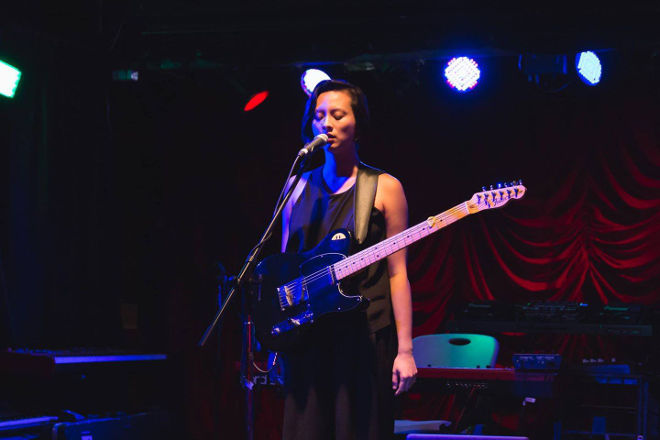
Credit: Lovely Head/Facebook.
However, the embracing of her culture is not as easy as Vivian wishes. Growing up in Australia, she could only pick up limited Vietnamese language from her parents – and her mother could only learn so much English. “There’s a language barrier,” she says. “I cannot access a particular percentage of my mum’s lines and how she thinks, because I don’t have the vocabulary, and vice versa.”
Going grocery shopping to Cabramatta with her mother every week became a routine that helps her relieve this gap. In Cabramatta, Vivian also feels a strange sense of comfort – seeing faces that look like hers and being where everyone speaks her mother’s language. There she seems to belong, as one of the Vietnamese people.
“But I’ll never be fully Vietnamese,” Vivian suddenly remarks. “When I go back to Vietnam, I can speak Vietnamese. But people can tell you’re not native Vietnamese just by looking at you, what you’re wearing, or your mannerisms. So I’ll never be fully Australian or fully Vietnamese.”
–
Bridget
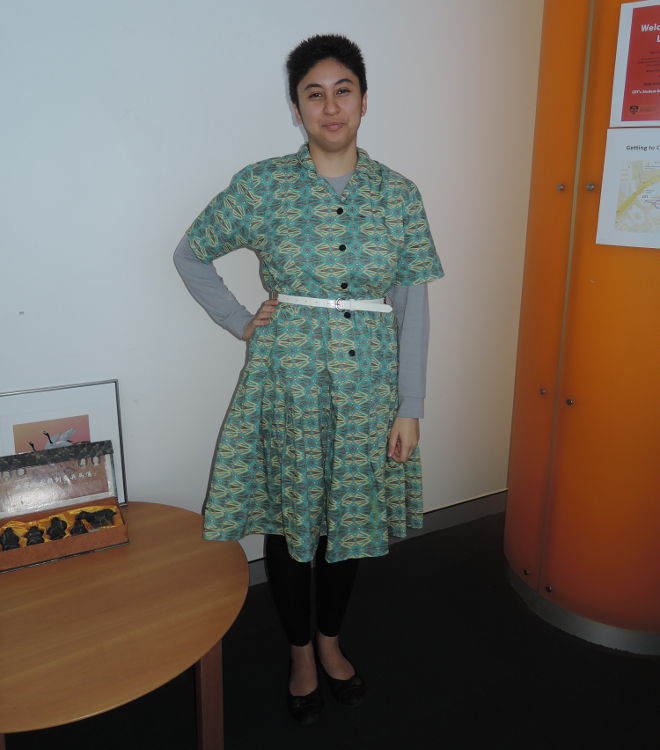
When you first meet Bridget, you might not expect that many at the University of Sydney find her views controversial. She has spent past few years being involved in the Autonomous Collective Against Racism, a community which has met with considerable opposition for excluding “White” people from membership. The latest in the long line of storms Bridget had endured was the online debate that followed her Facebook post condemning the “racist” Mexican and Luau dress code of an inter-faculty pub crawl. Her criticism attracted responses like “go back to your fucking cave and get offended at stupid shit like being mocked for identifying as a teacup-kin.”
Bridget does not seem to waver at these animosities. A smile rarely leaves her face, and her friendly, upbeat attitude endures even in difficult conversations. She admits that she was once her own biggest critic.
Before her activism, Bridget says she had trouble dealing with her own cultural heritage. Having a Chinese-Indonesian migrant mother and growing up in the primarily “white neighbourhood” of Newtown was not easy for her to negotiate. “I was very torn between two cultures,” she says.
Bridget often felt embarrassed by her mother. Sometimes, her mother would drop by the school to deliver her lunchbox or talk to teachers – things no other mothers seemed to do. Her mother never allowed her to go to sleepovers, whereas her brother had no such restrictions; and when Bridget told her friends this, “they would say ‘she’s crazy’, ‘she’s over-controlling’, ‘your mom’s the worst’.” As a result, Bridget came to see Western culture as something “superior… I wanted to be more Australian and less Indonesian.”
Later she learned that the shame was not simply because her mother was “embarrassing” – rather, it was due to the clash of cultures between her mother at home and her upbringing at school. Bridget believes this tension is not uncommon among second-generation Australians. “You are trying to reject the side of you that’s giving you trouble,” she says, “but the fact is you would never escape it, because that’s how you look, that’s how people judge you, and that’s just a reality of your life.”
Having spent most of her childhood in Australia, Bridget finally visited Indonesia on a student exchange program at 20. She was quick to catch up on Indonesian knowledge and culture; she learned about Indonesian histories, read the works of the nation’s first feminist Kartini, and interviewed a war veteran.
However, the most interesting thing she learned was that she had “white privilege”. She recalls the gleams in people’s eyes when she mentioned she was from Australia. “They automatically have the assumptions of how much better Australia is than Indonesia, and how much more valid my opinion is,” says Bridget. “If you’re a foreigner in Indonesia, and you go into a meeting with people, you immediately have more respect.” She says the organisers of a charity foundation she worked in wouldn’t be taken seriously by clients until they brought a “bule” – person of Anglo-Saxon descent.
In Australia, it is harder for her to discuss the existence of this privilege and its impacts. “You can’t actually point out a problem,” she says, “because people will say that it doesn’t exist.”
Bridget says there is a troubling tendency for many Australian-born migrants to want to ignore or even reject their own heritage, as assimilation sounds like an easier option. She wants to reject this propensity. “I want to be a critical migrant that goes back to Indonesia and does something for the country instead of just leaving and getting the benefit of being Australian, and not using that benefit to help anybody else except myself.”
Bridget’s desire to give back to her homeland becomes her dream career. She is finishing her studies soon, and cannot resist the idea of working in Indonesia after graduating – particularly in the community development field. “Clear water, sanitation… the very basic necessities of life in Indonesia are at risk right now, a lot of people don’t have those things.
“I feel like my Australian citizenship is so guaranteed, and that citizenship is something that I shouldn’t take for granted – I should use that for something good.”
–
Joanita Wibowo is a Sydney-based writer. Her works have been featured in The Point Magazine, Honi Soit, Sydney Observer, and more. All images by Joanita unless stated otherwise.
–
*name changed for anonymity
